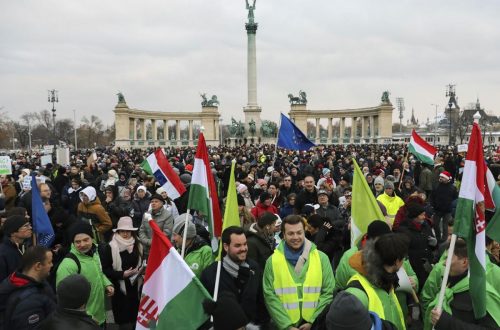The attack on the US consulate in Benghazi and other violence has obscured the good news about post-Gaddafi Libya, according to David J. Kramer and Arch Puddington of the human rights group Freedom House.
They write in Foreign Policy:
Perhaps the past year’s most surprising development was Libya’s impressive progress toward democracy. For decades, Libya had ranked among the world’s most repressive regimes. One of the worst of the worst. Now, after months of civil war and more than a year of tenuous nation building, Libya has an elected government, comparatively wide-ranging freedoms, and a leadership that seems committed to accountable rule. Other post-revolutionary governments have begun well and ended poorly, and the Libyan experience with freedom could still go awry. But for the time being, the country qualifies as a success story.
Overwhelming credit for Libya’s achievements must go to those who risked and in many cases lost their lives by rebelling against the brutal rule of Muammar al-Qaddafi. The critical role played by the United States and other democratic countries in Libya’s liberation should also be recognized. Notwithstanding Libya’s ongoing problems and events like the tragic assault on the U.S. mission in Benghazi last September, the overall outcome in the country ranks among the most notable achievements of Barack Obama’s first term. Yet strangely, the United States seems uncomfortable with acknowledging its contribution to this important step forward for democratic values and the transformation of the Middle East. During the campaign, Obama was muted in claiming success on the Libya mission. Likewise, Republicans have only grudgingly acknowledged Libya as an American accomplishment — particularly since Benghazi.
The introduction to Freedom House’s annual Freedom in the World report notes that the world saw an overall decline in the level of democracy in 2012. But:
Among the most striking gains for freedom was that of Libya, which advanced from Not Free to Partly Free and registered one of the most substantial one-year numerical improvements in the report’s nearly 40-year history. Burma and a number of African countries, including Côte d’Ivoire, Guinea, Lesotho, Senegal, and Sierra Leone, also saw major advances. Noteworthy declines were recorded for Kazakhstan, Kenya, Mali, Nigeria, Russia, Turkey, and Ukraine.
Of course Libya hasn’t achieved First World levels of democracy and freedom in one year, and things could too easily go backwards. But encouraging trends in the Middle East are nothing to sneeze at, and they deserve support.
You can read Freedom House’s report on Libya here.


